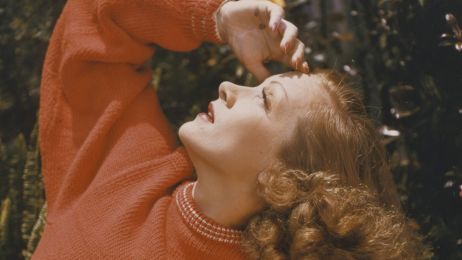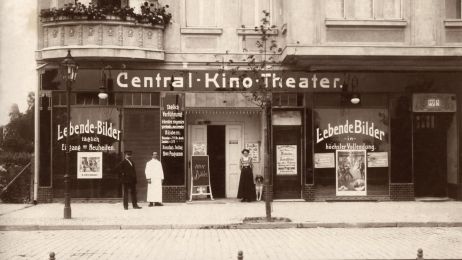
Ofilm
Film Restored – The Film Heritage Festival
We’re celebrating our 10th anniversary – the call for submissions is now open! The anniversary edition of our film heritage festival emphasizes agency and fast action.
The next best thing to watching a film is reading about it. The Deutsche Kinemathek routinely publishes books on film and television history.
The Museum for Film and Television offers a diverse range of educational options, including tours, workshops, film views and discussions.
We have signed the Berlin Declaration of the Many.

Our archives are temporarily closed as we prepare to move to E-Werk. Our new search portal (currently available in German only) lets you search all collections and archives online.

On the platform, children can create their own animated films and watch captivating short films. A selection of the videos includes audio descriptions, subtitles, and sign language, as well as translations in Arabic, Polish, and Turkish.

Did you know? Our film distribution library houses over 20,000 films available for screenings at cinemas and festivals.
Due to the extensive nature of our collections and archives, we are only able to present a fraction of them in the museum. You can discover, research, and view more highlights in our “digital collection”.

Peek into the archive of Werner Herzog, one of the most controversial German directors, internationally renowned. We dedicated an exhibition to him in 2023.

Insights into the life of an icon: photos from Marlene Dietrich’s childhood in Berlin, her dedication during World War II, and numerous costumes and costume designs.

Travel through time and discover 100 years of movie theater history in Berlin! Explore our collection through seven chronological photo galleries and delve into historic views of the city.
Content note
The mission of the Deutsche Kinemathek is to preserve and reflect on audiovisual heritage. This includes content in the collections and archives that reproduces ideologies or stereotypes and which is discriminatory. When dealing with such content and any reproduction thereof, contextualizations are essential. This does not imply any endorsement of the statements, judgements or representations conveyed by the respective content.
The next best thing to watching a film is reading about it. The Deutsche Kinemathek routinely publishes books on film and television history.
The Museum for Film and Television offers a diverse range of educational options, including tours, workshops, film views and discussions.
We have signed the Berlin Declaration of the Many.